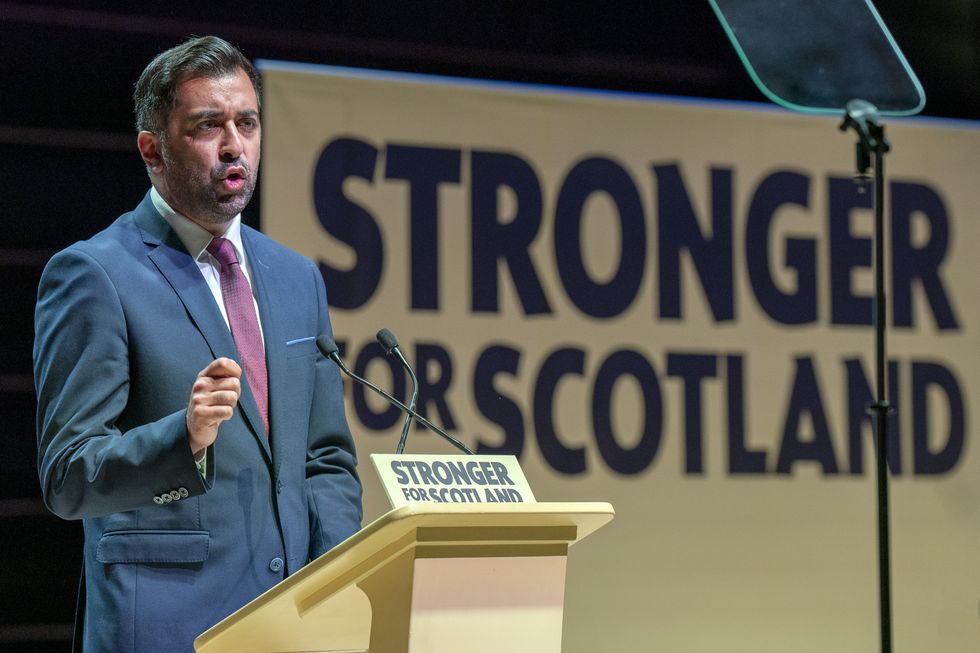Adam Chapman
Guest Reporter
Reform UK can win the next General election without reforming Britain's voting system, claims the nation's favourite election guru.
The insurgent party's manifesto pledge was a response to the largest-ever gap between the share of total votes won by the winning party and the share of Parliamentary seats won at the last General Election.
Under Britain's first-past-the-post (FPTP) voting system, the candidate with the most votes in each constituency wins the seat, regardless of whether they achieve an absolute majority. This means a high vote share does not necessarily translate into parliamentary seats.
Farage's party won around 14 per cent of the popular vote or around four million votes, which made them the third-largest party by vote share. However, they only secured five Parliamentary seats.
The Labour Party, on the other hand, won 34 per cent of the national vote share and gained a majority of 411 seats.
Reform views this outcome as inherently unfair and is pushing for proportional representation (PR) instead. This aims to ensure that the number of seats a party gets in parliament more closely matches its share of the national vote.
Nigel Farage's party has pledged to put this to the people in a referendum, stating in its manifesto: "Large numbers of voters have no representation in parliament and new parties are shut out of the political system. Voter turnout could be some 10 per cent higher with PR. A referendum is needed."
According to Professor Sir John Curtice, one must look to the volatility of Scottish politics to understand why this thinking is so wrong-headed.

"There is no golden rule that says that third parties cannot gain seats. Look at the SNP in Scotland - they destroyed the traditional two-party system destroyed in 2015. Scotland shows you there is no right to left." he told GB News.
Curtice makes the point that before that seismic election, the SNP were the third party behind Labour and the Conservatives in Scotland.
However, FPTP effectively propelled the SNP to power. The party's gains came largely at the expense of Labour, as many voters who supported Scottish independence tactically voted for the SNP to ensure that Scotland would have a significant say in Westminster, fearing a Conservative majority.
This tactical voting was particularly effective due to the concentration of SNP support, leading to a near sweep of Scottish seats.
"Now Labour has come back, but it's already behind the SNP in the opinion polls at the border," he said.
The takeaway from this is that everything is to play for, and a week is a long time in British politics, Curtice says.
As the election guru points out, societies everywhere are going through "fundamental change", with economic growth sluggish and public services creaking, and the state has "dramatically expanded" in response to these challenges.
The British Conservatives' inability to deal with these issues led to one of their party's worst defeats in its nearly 200-year history on July 4.
The British public effectively used FPTP to register their discontent with the Tories, which led to a massive swing for Labour.
This doesn't suggest that the game was rigged in favour of the two parties - on the contrary, it proves that democracy was working, Curtice suggests.
LATEST MEMBERSHIP DEVELOPMENTS

The lesson to take away from the rise of the Liberal Democrats and the SNP is that third parties can take advantage of political fragmentation and Reform could therefore achieve a massive victory in 2029, Curtice suggests.
"At the moment, the geographical even spread of reform is at its greatest to its disadvantage. If it were to pull ahead in the polls, that would certainly become an advantage," he said.
The signs are encouraging: Reform is now polling as high as 21 per cent in Britain-wide polling. If a General Election were held tomorrow, it could quadruple its MP tally or better.
Nigel Farage's party also has the backing of X Owner Elon Musk. An X account named 'Inevitable West' posted the news of former Tory MP Dame Andrea's defection to Reform and stated: "Reform will win the next election". Musk responded to the post with a simple "Yes".
However, turning momentum into votes is no small feat, notes Curtice.
Reform will have to "succeed in creating a party organisation across the country because that's what they don't [currently] have", he tells GB News.
Curtice points out that UKIP - Farage's former party - never managed to achieve this.
"It remains to be seen whether Reform UK can embed itself in the social and organisational life of the country," he added.
Find Out More...
The insurgent party's manifesto pledge was a response to the largest-ever gap between the share of total votes won by the winning party and the share of Parliamentary seats won at the last General Election.
Under Britain's first-past-the-post (FPTP) voting system, the candidate with the most votes in each constituency wins the seat, regardless of whether they achieve an absolute majority. This means a high vote share does not necessarily translate into parliamentary seats.
Farage's party won around 14 per cent of the popular vote or around four million votes, which made them the third-largest party by vote share. However, they only secured five Parliamentary seats.
The Labour Party, on the other hand, won 34 per cent of the national vote share and gained a majority of 411 seats.
Reform views this outcome as inherently unfair and is pushing for proportional representation (PR) instead. This aims to ensure that the number of seats a party gets in parliament more closely matches its share of the national vote.
Nigel Farage's party has pledged to put this to the people in a referendum, stating in its manifesto: "Large numbers of voters have no representation in parliament and new parties are shut out of the political system. Voter turnout could be some 10 per cent higher with PR. A referendum is needed."
According to Professor Sir John Curtice, one must look to the volatility of Scottish politics to understand why this thinking is so wrong-headed.

"There is no golden rule that says that third parties cannot gain seats. Look at the SNP in Scotland - they destroyed the traditional two-party system destroyed in 2015. Scotland shows you there is no right to left." he told GB News.
Curtice makes the point that before that seismic election, the SNP were the third party behind Labour and the Conservatives in Scotland.
However, FPTP effectively propelled the SNP to power. The party's gains came largely at the expense of Labour, as many voters who supported Scottish independence tactically voted for the SNP to ensure that Scotland would have a significant say in Westminster, fearing a Conservative majority.
This tactical voting was particularly effective due to the concentration of SNP support, leading to a near sweep of Scottish seats.
"Now Labour has come back, but it's already behind the SNP in the opinion polls at the border," he said.
The takeaway from this is that everything is to play for, and a week is a long time in British politics, Curtice says.
As the election guru points out, societies everywhere are going through "fundamental change", with economic growth sluggish and public services creaking, and the state has "dramatically expanded" in response to these challenges.
The British Conservatives' inability to deal with these issues led to one of their party's worst defeats in its nearly 200-year history on July 4.
The British public effectively used FPTP to register their discontent with the Tories, which led to a massive swing for Labour.
This doesn't suggest that the game was rigged in favour of the two parties - on the contrary, it proves that democracy was working, Curtice suggests.
LATEST MEMBERSHIP DEVELOPMENTS
- Reform biggest party in East Midlands, East England and Wales as Labour support crumbles
- These immigration figures are eyewatering but they don't tell the full story - Kelvin MacKenzie
- EXCLUSIVE: Putin 'close to victory' warns ex-RAF Chief

The lesson to take away from the rise of the Liberal Democrats and the SNP is that third parties can take advantage of political fragmentation and Reform could therefore achieve a massive victory in 2029, Curtice suggests.
"At the moment, the geographical even spread of reform is at its greatest to its disadvantage. If it were to pull ahead in the polls, that would certainly become an advantage," he said.
The signs are encouraging: Reform is now polling as high as 21 per cent in Britain-wide polling. If a General Election were held tomorrow, it could quadruple its MP tally or better.
Nigel Farage's party also has the backing of X Owner Elon Musk. An X account named 'Inevitable West' posted the news of former Tory MP Dame Andrea's defection to Reform and stated: "Reform will win the next election". Musk responded to the post with a simple "Yes".
However, turning momentum into votes is no small feat, notes Curtice.
Reform will have to "succeed in creating a party organisation across the country because that's what they don't [currently] have", he tells GB News.
Curtice points out that UKIP - Farage's former party - never managed to achieve this.
"It remains to be seen whether Reform UK can embed itself in the social and organisational life of the country," he added.
Find Out More...